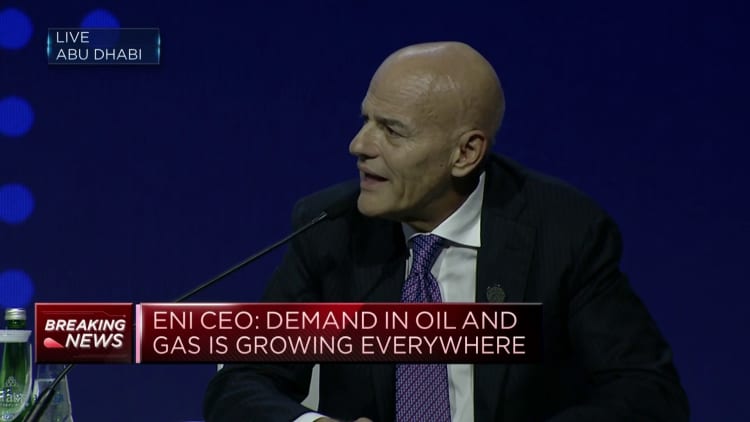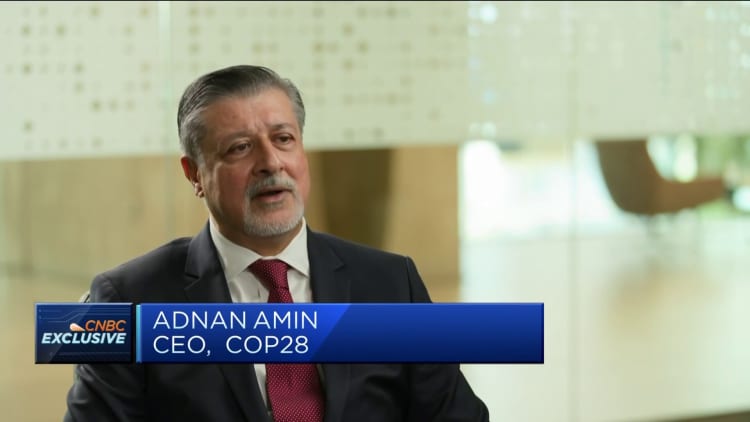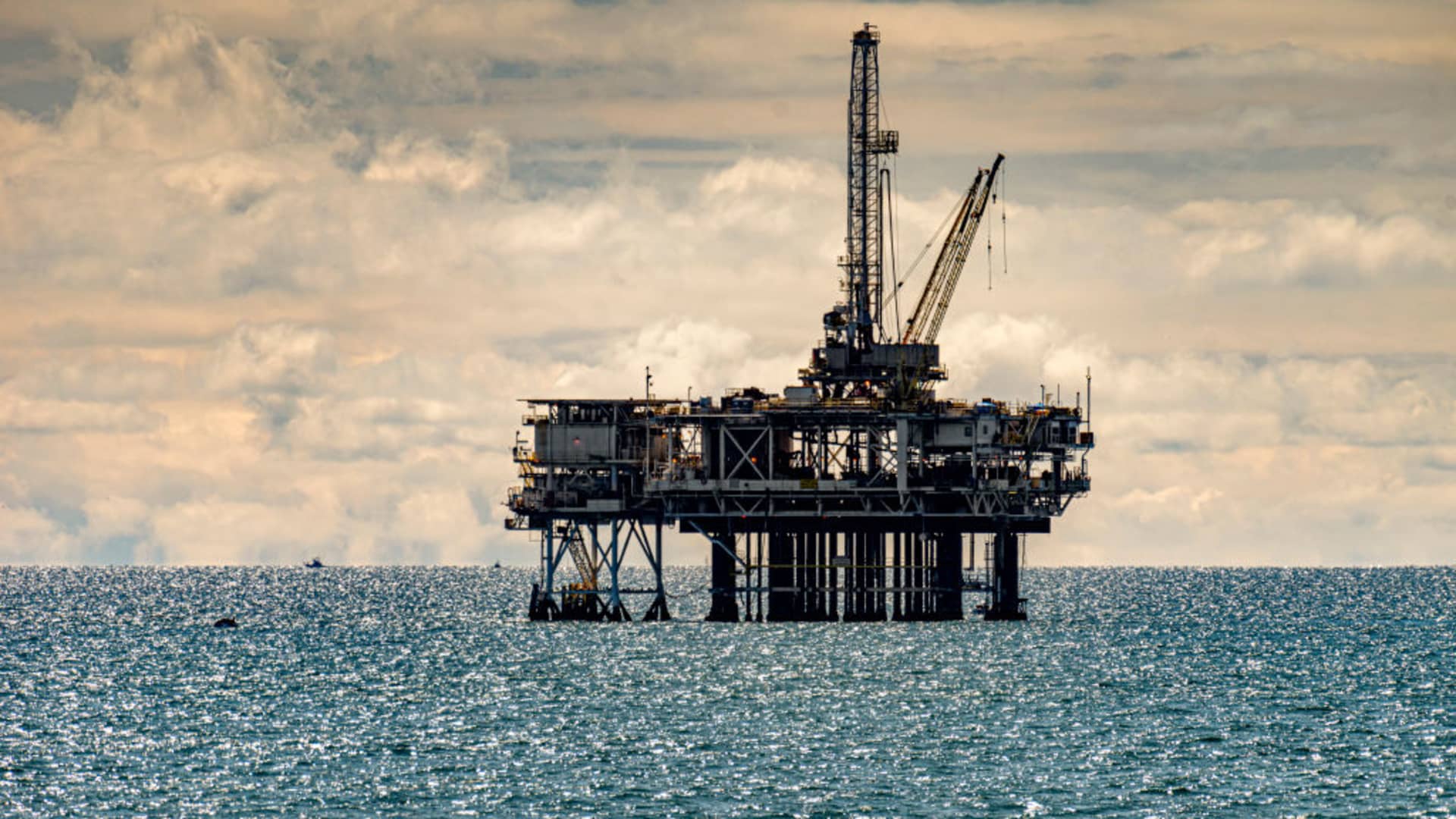An off-shore oil platform off the coast in Huntington Beach, California on April 5, 2020.
Leonard Ortiz | MediaNews Group | Orange County Register | Getty Images
It’s been a fierce debate between two major players in the energy industry – the International Energy Agency (IEA) and OPEC – as they clash over the future of peak oil demand, a critical concern for crude producers.
Peak oil demand refers to the point when global crude demand reaches its highest level, followed by a permanent decline. This decline would reduce the attractiveness of crude oil projects and make them less economically viable as alternative energy sources gain prominence.
For oil-producing countries and companies, this is an existential issue.
So when the chief of the IEA, an intergovernmental organization representing oil-consuming countries, predicted that peak oil demand would occur by 2030 and celebrated the decline of crude as a positive development, OPEC was livid.
“Such narratives only set the global energy system up for a catastrophic failure,” said OPEC Secretary-General Haitham al-Ghais in a statement on September 14th. “It would lead to energy chaos on an unprecedented scale, with dire consequences for economies and billions of people worldwide.” Al-Ghais accused the IEA of fearmongering and jeopardizing the stability of the global economy.
This dispute highlights the ongoing clash between climate change concerns and the need for energy security. This tension was prominently displayed at ADIPEC – the annual gathering formerly known as the Abu Dhabi International Petroleum Exhibition and Conference, which has now been renamed the Abu Dhabi International Progressive Energy Conference.

The United Arab Emirates (UAE), as the third-largest oil producer in OPEC, will host the COP28 climate summit in November. The UAE has been promoting its sustainability campaigns while simultaneously increasing its crude production capacity in anticipation of future demand growth. CEOs of major oil companies and state oil producers have emphasized the need for a dual approach, asserting that their companies are part of the solution rather than the problem, and that an energy transition cannot occur without the security and economic support provided by the hydrocarbons sector.
Claudio Descalzi, CEO of Italian multinational energy company Eni, cautioned against reducing investments in oil, highlighting the dangers of supply shortages and surging prices, which would have a detrimental impact on the economy while acknowledging the environmental concerns associated with fossil fuels. He emphasized the importance of a balanced approach, stating that we cannot solely rely on renewables at the expense of existing infrastructure and demand.

In its August 2023 report, the IEA stated that global oil demand is reaching record levels and is expected to continue growing. However, the agency also projected that faster adoption of electric vehicles, renewable energy, and a reduced dependence on Russian gas would accelerate peak demand before 2030. The IEA outlined a road map for achieving net zero emissions by 2050, which would require a significant decrease in global oil demand.
These figures are staggering considering that during the peak of the COVID-19 pandemic in March and April 2020, global daily oil demand dropped by 20% due to lockdown measures. The IEA’s road map aims to achieve a 25% reduction in daily oil demand within the next seven years.
‘We all strive for the same thing’
OPEC leaders argue that oil demand continues to rise each year, particularly in major emerging markets like China and India. However, climate scientists warn that the failure to take action will lead to catastrophic consequences. The Intergovernmental Panel on Climate Change (IPCC) states that global fossil fuel emissions must be halved within the next decade to limit global warming to 1.5 degrees Celsius above preindustrial levels. Fossil fuels and heavy industry account for approximately 90% of global CO2 emissions.
This ongoing conflict between advocates of climate action and the hydrocarbons industry persists, despite calls for collaboration. Oil companies have faced criticism for scaling back their climate commitments following record profits.

During an
Denial of responsibility! Vigour Times is an automatic aggregator of Global media. In each content, the hyperlink to the primary source is specified. All trademarks belong to their rightful owners, and all materials to their authors. For any complaint, please reach us at – [email protected]. We will take necessary action within 24 hours.
Denial of responsibility! Vigour Times is an automatic aggregator of Global media. In each content, the hyperlink to the primary source is specified. All trademarks belong to their rightful owners, and all materials to their authors. For any complaint, please reach us at – [email protected]. We will take necessary action within 24 hours.


